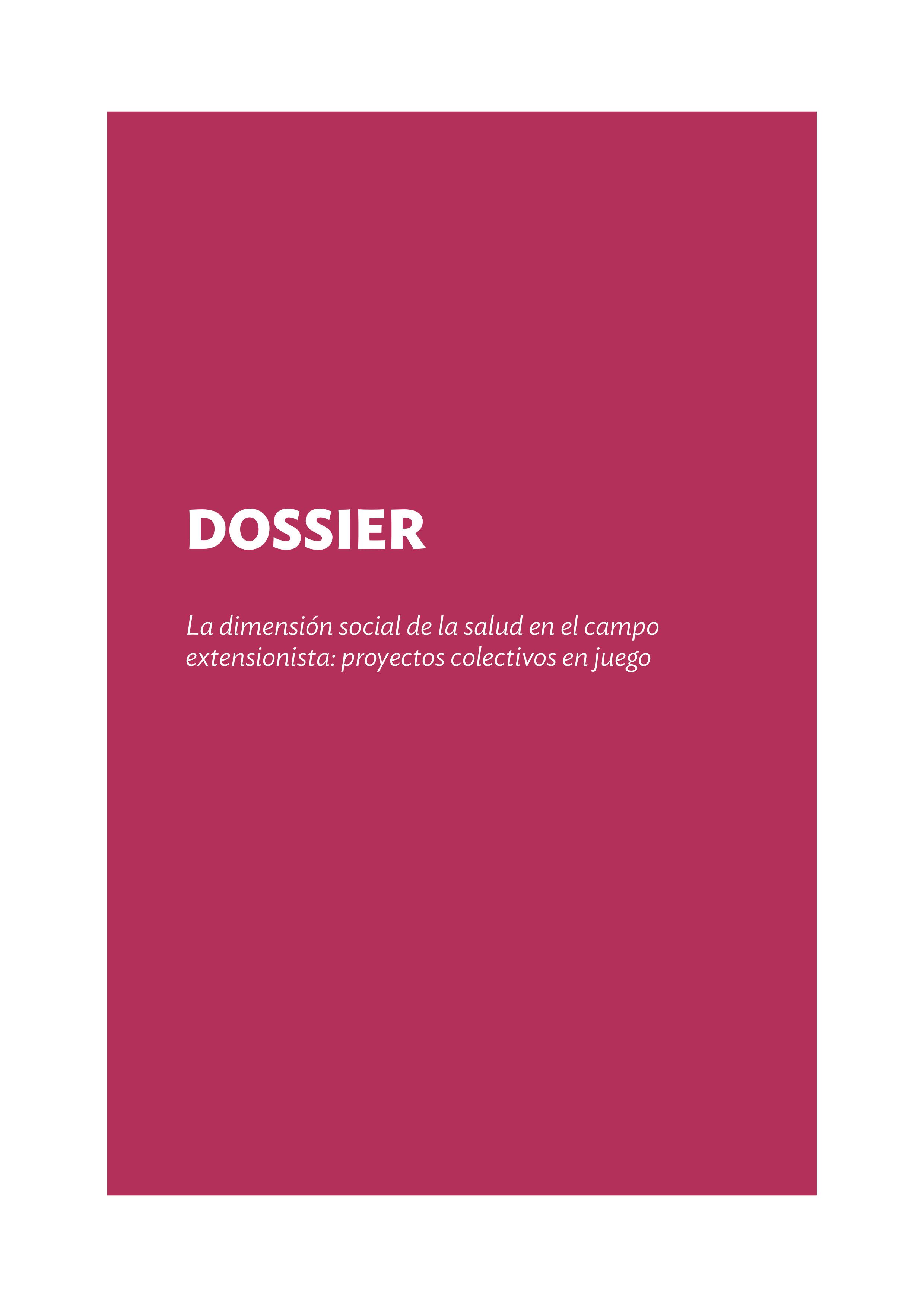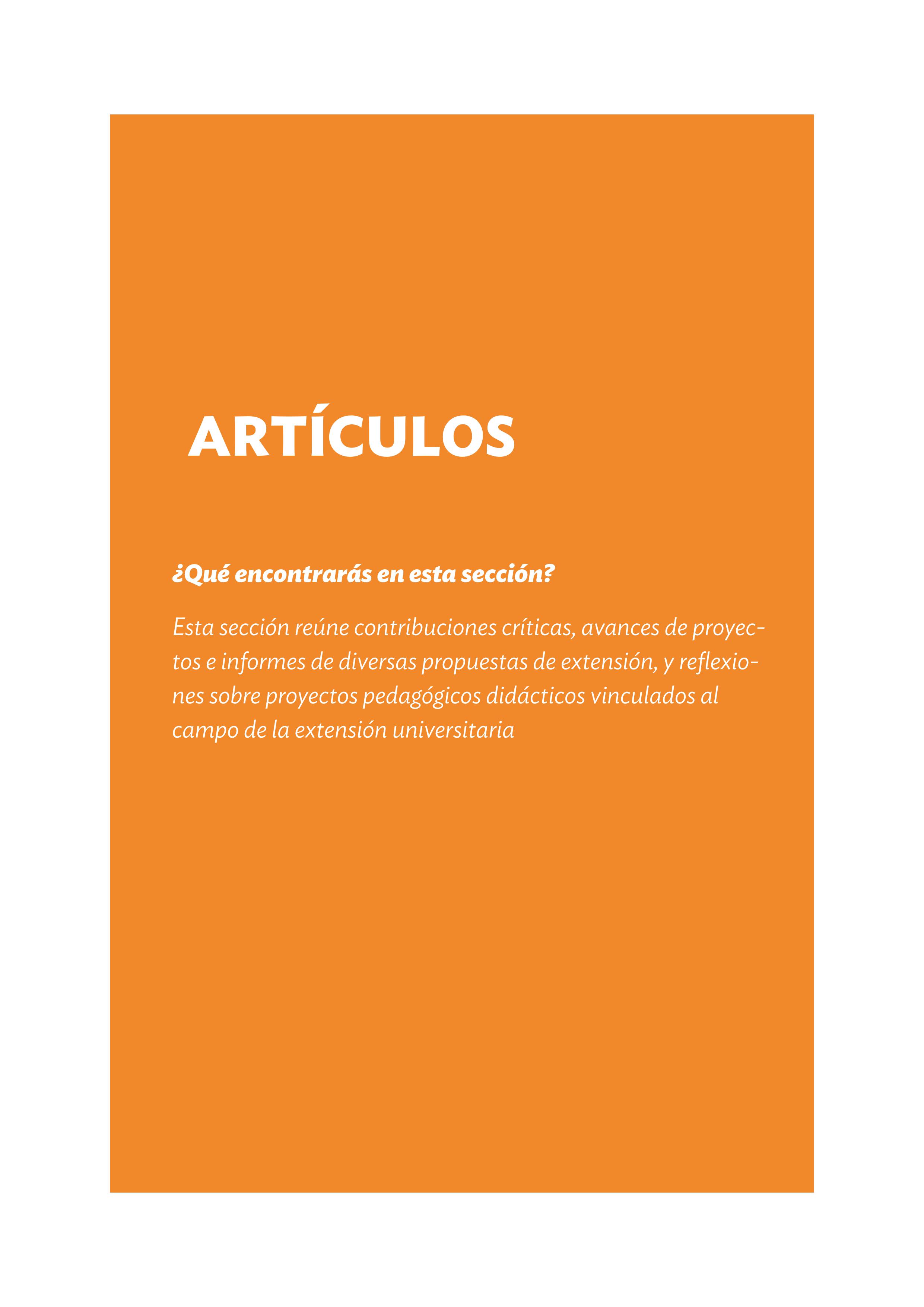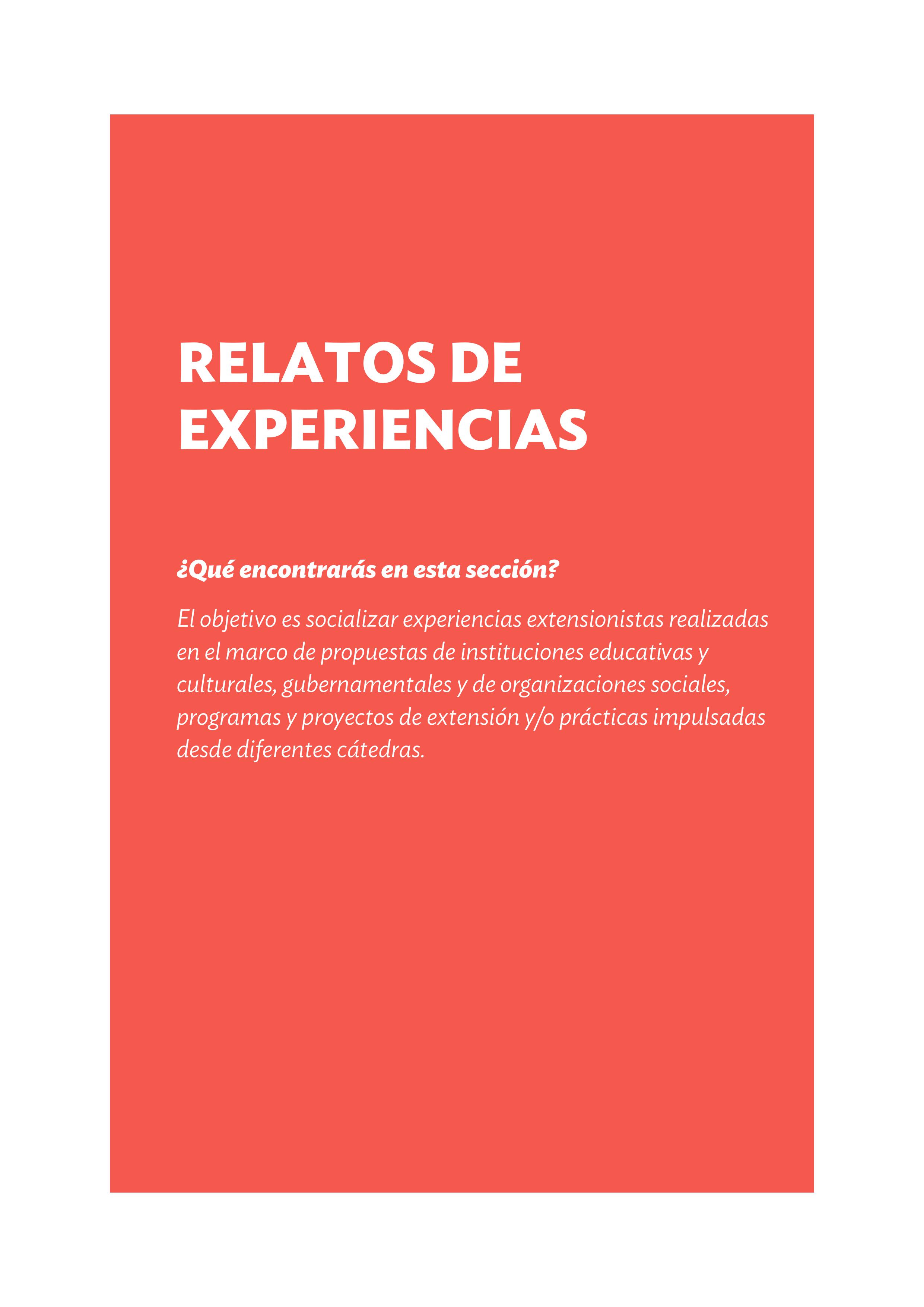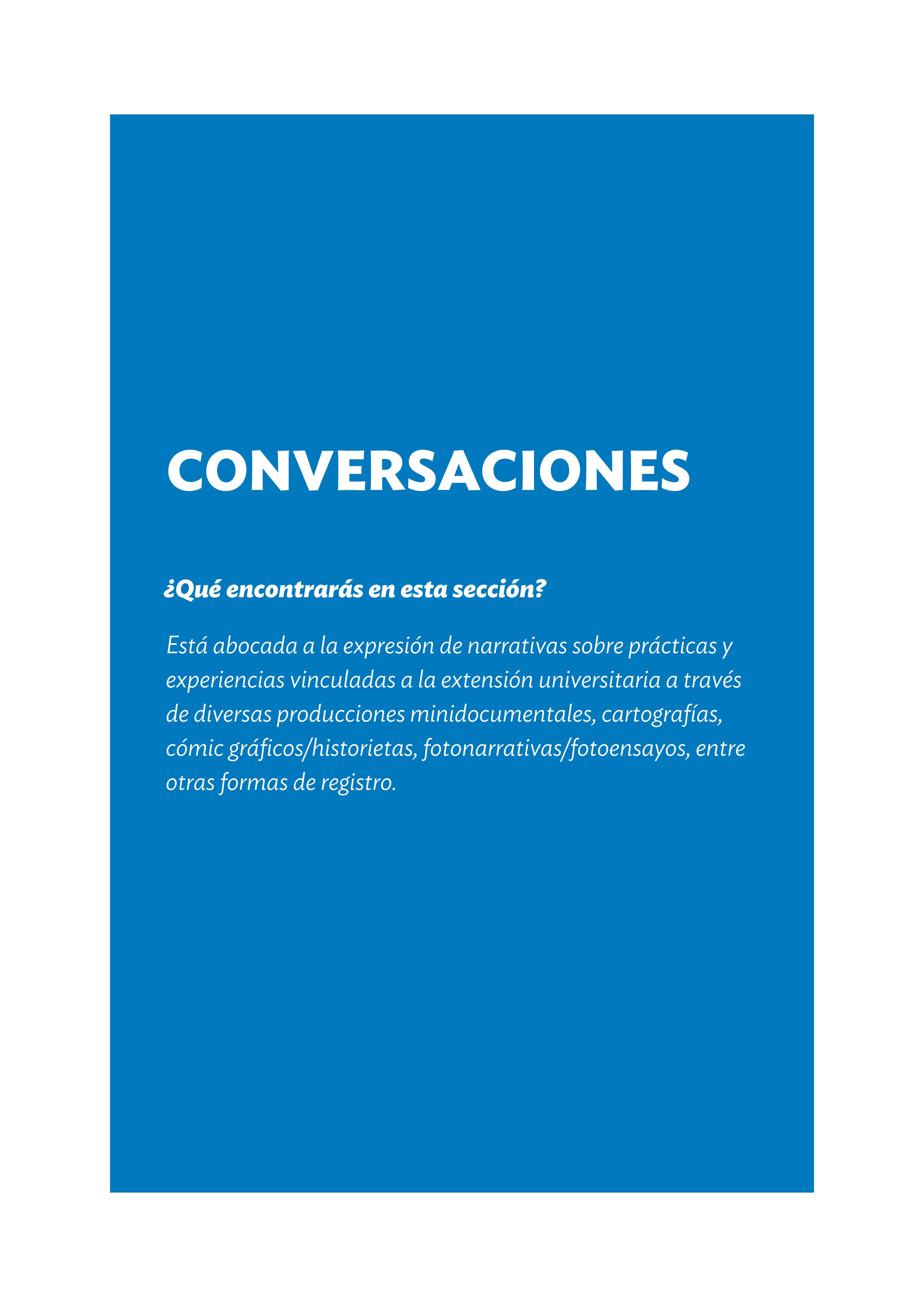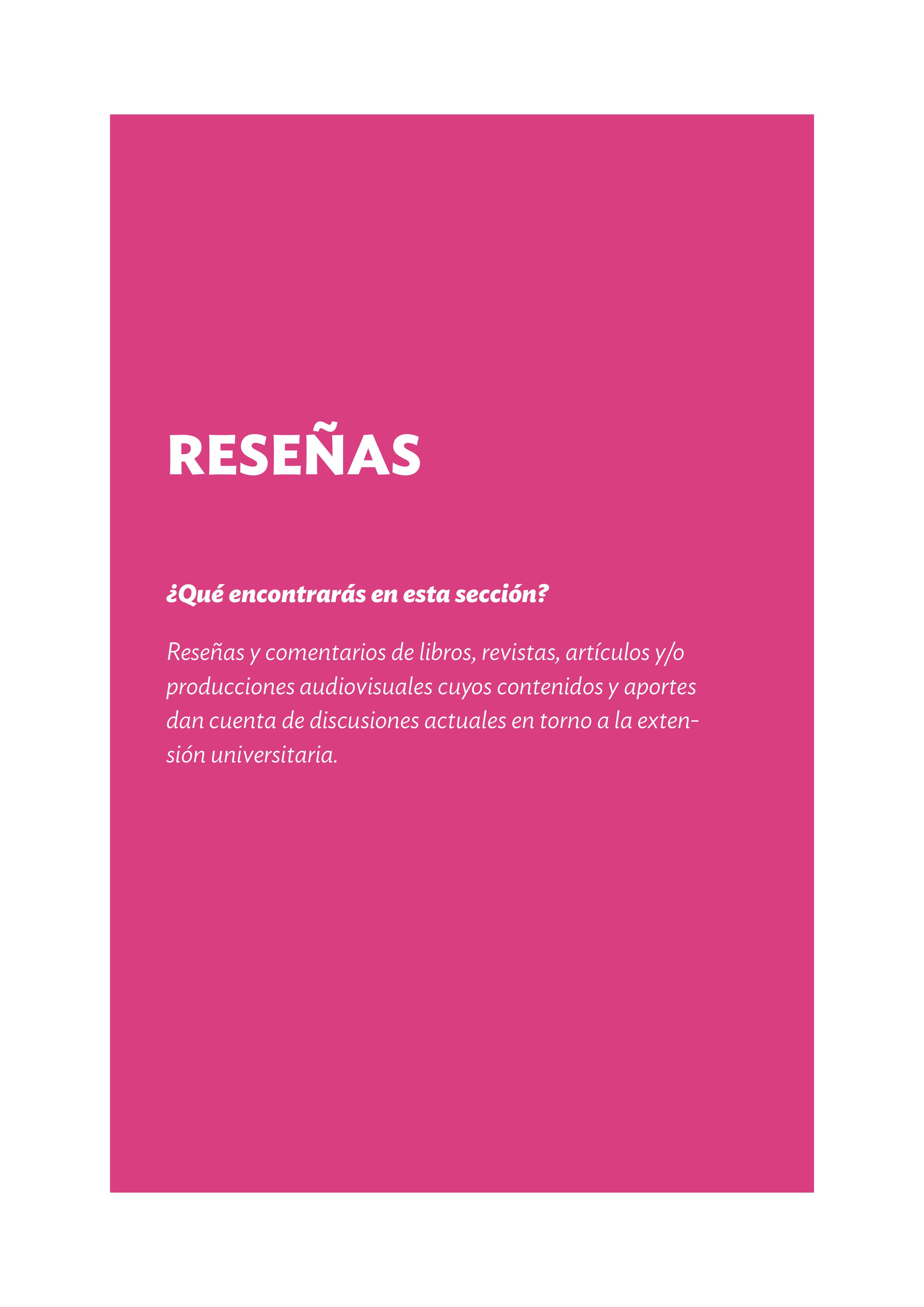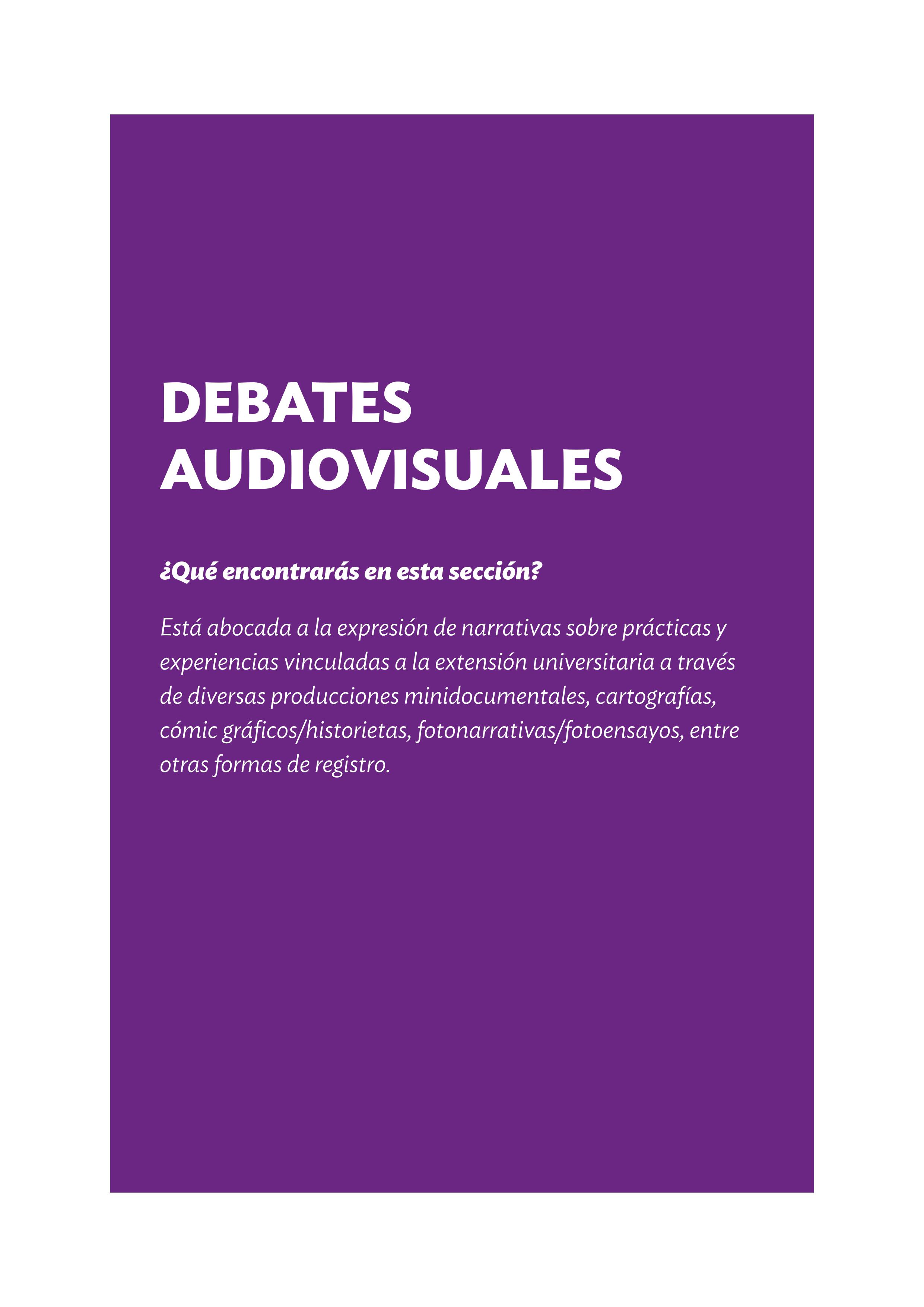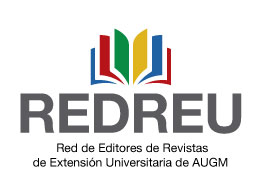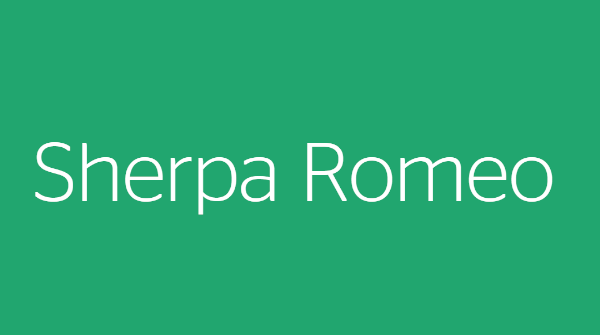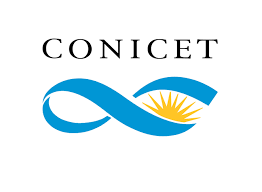Vol. 8 No. 11 (2021): La dimensión social de la salud en el campo extensionista: proyectos colectivos en juego
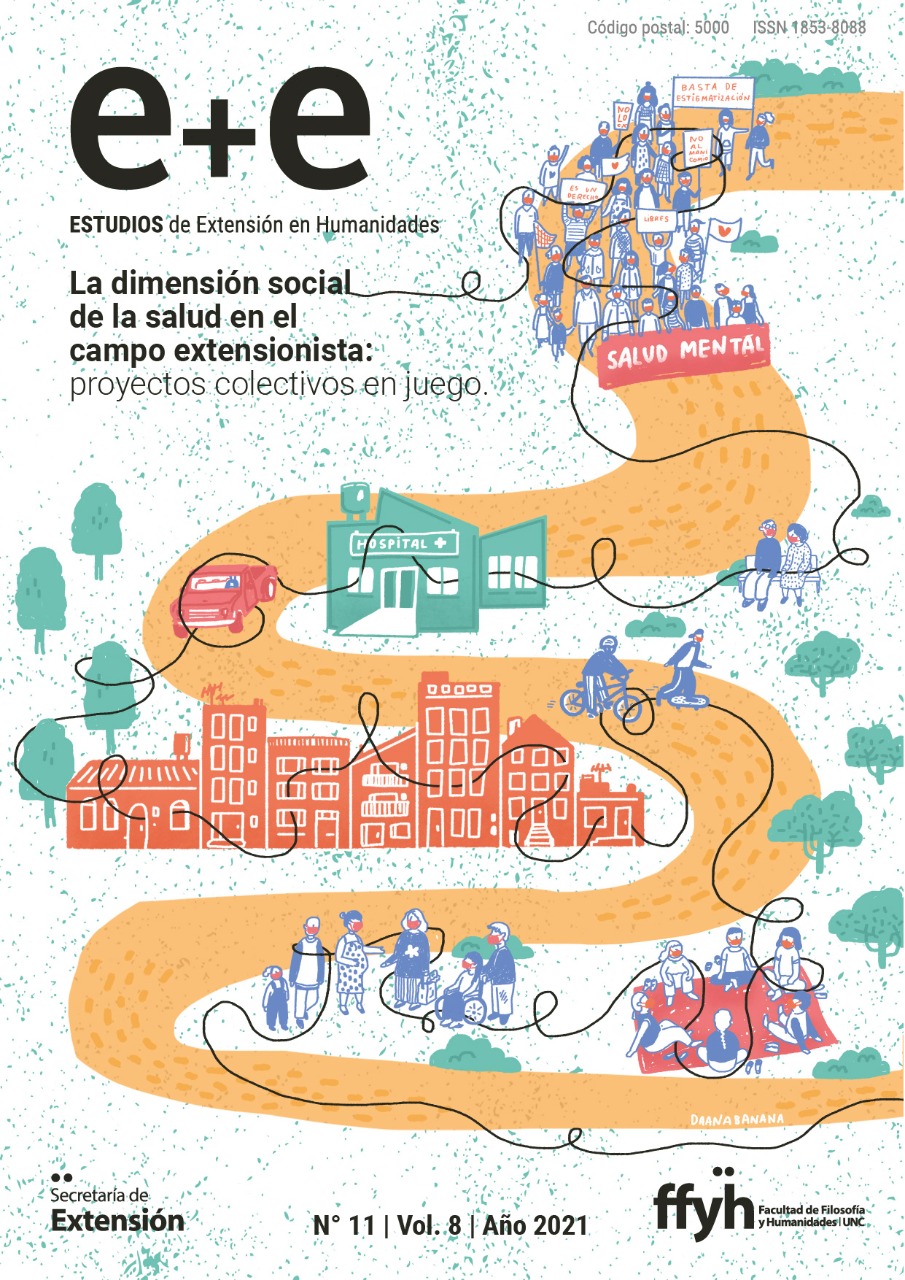
The socio-health crisis that we are going through and that crosses us on a daily basis, has extended and (re)placed with force numerous questions about what we understand by health, its scope and links with social and territorial inequalities, the environment, the responsibilities that different social actors have and have over it, the complexities involved in care, the limitations of the political answers cut in biological and individual key, as proposed by the market. In the current context, it is necessary to recognize that the pandemic only expands, increases and/or updates these questions and reflections.
We recognize in recent history, that the social dimension of health was brought into focus in our continent at the end of the 20th century by the
continent at the end of the 20th century by the current known as social medicine or collective health. From the academic field, together with social movements, in particular the labor movement, evidence was built on the unequal distribution of disease in our continent at the end of the 20th century.
the unequal distribution of disease, illnesses and deaths in social groups according to their position in society.
social groups according to the position they occupied in the structure of society. Foucault's studies (1999, p. 357) point out in this sense that medicine is connected with the economy "no longer simply because it is capable of reproducing the labor force, but because it can directly produce wealth, insofar as health represents a desire for some and a luxury for others". As Laurell (1986) points out, the process of "health-illness" in collective terms, expresses the historical and social character of the human biological process; understanding "the social" not as "external articulation", nor as just another dimension, but emphasizing the "social character in itself". From a subjective perspective, Menéndez argues that "diseases, illnesses and damage to health constitute some of the most frequent, recurrent and continuous events [...] that affect the daily life of stratified social groups" (Menéndez, 1994, p.71). These are events that disrupt, fragment and disorganize a large part of the social relations of individuals and groups. Together with the irruption of situations of illness or suffering, social responses are organized, also constituting a series of daily, recurrent and permanent constructions, through which relationships, practices (techniques and ideologies) and meanings are established, some of them expressed as professional intervention projects. The field of health is a field of disputes, the tension between societal projects around the expansion of rights and reduction of inequalities against the expansion of the market and the medicalization of life, is expressed in the political, economic, social and also academic game.
The university space and particularly the outreach experiences are configured as a sounding board and at the same time as potential
resonance box and at the same time potential architects in propitiating critical approaches to the dominant, binary and medicalizing modes of social production. It is considered that the projects that bring together multiple experiences and voices are an expression of a context that fosters silenced, repressed, contained demands, which emerge today, with more strength. The extensionist experiences are inserted in historical institutional matrixes and in many opportunities aim at generating instituting processes and novel practices within an instituted habitus, deconstructing meanings and devices crystallized in the most traditional approaches. The different feminisms that transversalize university life have contributed to generate ruptures in the health field with normalizing, moralizing and stigmatizing models in the populations, contributing to the design of "new bridges" in propositive approaches.
We look at university extension in a broad sense, involved in the most diverse aspects of linkage with society, but from a precise perspective; not as a one-way, unidirectional movement, from a university place with knowledge that "takes" its knowledge to others, lacking such knowledge. Neither do we conceive extension as transferring, preventing, training or communicating in health. Rather, we consider that any extensionist linkage implies an encounter between "knowledges" and "tasks" that can be recognized as different and equivalent, as they occur between diverse social actors, between realities that coexist generating situated and contextualized knowledge.
From this perspective, we invite the community in general and the academic community in particular, to share writings that recover practices, experiences, systematizations, reflecting on topics that address health in the extension field. For this purpose, we propose some possible axes, although not exclusive, from this social prism that is intertwined with the good living of ours people:
-The gender and human rights perspective in health approaches: critique of the normalization of bodies;
Visibilization of gender inequalities of workers and users of public services; etc.
-Interculturality in health: dialogue/articulation between traditional medicine and biomedicine,
experiences of intercultural practices.
-Models of care in the community: prevention and accompaniment work in situations of gender violence, integral clinics, etc.
gender violence, integral health clinics, etc.
-Disability as a social construction: participatory processes in the construction of demands for invisible groups, campaigns for
Disability as a social construction: participatory processes in the construction of demands for invisibilized groups, rights campaigns, etc.
Peer-to-peer health promotion devices: training of young people in the prevention of problematic substance use, women's round in the accompaniment of pregnancies, etc.
-Territorial primary care experiences: interdisciplinary and intersectoral approaches,
active participation in project management, community intervention from participatory proposals,
etc.
-Intervention in the context of the health crisis-Covid 19: health workers' care,
care demands in vulnerable communities, communicational constructions around risk populations and prevention practices, maps and cartographies of the pandemic from the perspective of extension work, etc.
-Sexual and (non) reproductive health: counseling experiences, the approach to health promotion with young people, women's meeting places, etc.
-Approaches to problem prevention and health promotion from the life course: childhood, youth, adults,
youth, adults.
- Mental health: demanicomializing processes-subjectivizing experiences; representations and practices with service users, intersectoral work networks, etc.
- Community wefts and spatialities of health: experiences in communities around other ways of conceiving and understanding health.
of conceiving and understanding health, collaborative work and diversity of ancestral and territorial knowledge in health, among others.
territorial knowledge in health, among others.
